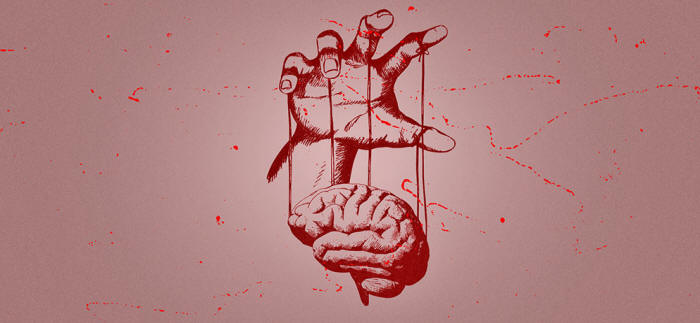|
from Medium Website
nonviolent psychopaths say they're nothing like the psychopath we see on our movie screens...
Jane, let's call her,
assumed the man was drunk, so she didn't bother being friendly or
making any effort with him. But her unfiltered behavior didn't go
unnoticed, and at the end of the flight, the man politely suggested
she might be a psychopath.
She recognized herself in
the descriptions and tried to talk to her sister about it, but her
sister seemed hurt and offended. So Jane took it back and said she
wasn't a psychopath and that she didn't mean it.
In recent years, the violent, manipulative psychopath has become so pervasive in popular culture that it's hard to find a Netflix series about anything else.
After watching 400 movies made between 1915 and 2010 to identify "realistically" portrayed psychopaths, Belgian psychiatry professor Samuel Leistedt concluded,
Away from our screens, however, psychopathy is not a monolithic disorder with clearly defined behaviors.
It's nuanced and widely misunderstood, according to James Fallon, a neuroscientist who incidentally discovered his own psychopathic traits when examining his PET scan as part of an unrelated research project.
The latest edition of the American Psychiatric Association's Diagnostic and Statistical Manual of Mental Disorders defines ASPD as a,
Psychopaths are considered to have a severe form of ASPD.
Scientists estimate that the prevalence of psychopathy in society varies between around 0.2 and 2 percent, and research suggests that those with psychopathic traits are more violent than those without.
But experts, also acknowledge (in Psychopathic Personality - Bridging the Gap Between Scientific Evidence and Public Policy) that not everyone with a diagnosis is violent, including Fallon.
Thomas, an attorney and law professor whose book details her life as a self-described nonviolent sociopath, says there is truth to the questions people might ask themselves in Jane's family's position, but it doesn't have to be that way.
In the process of being
open with people about her own diagnosis, Thomas lost one friend and
many professional opportunities, but most of her friends eventually
came around.
In her book, Thomas writes that he calls herself a "sociopath" instead of "psychopath" because of the negative connotations of "psycho" in popular culture - even though psychosis is not a characteristic of psychopathy.
For those with an ASPD
diagnosis, these popular misconceptions can have serious
consequences.
Bolton had been getting into fights, dealing amphetamines, and had even been arrested. But today she has a stable life with good friends, a supportive fiancée, and her first child on the way.
She blogs about how to turn antisocial traits into positives.
Because of her diagnosis, Bolton explains, people interpret her positive traits negatively, assuming her confidence is narcissism and her social skills are manipulation - medical professionals included.
Bolton is so affected by the public perception of psychopaths that she often stays indoors to avoid interacting with people.
This judgment toward people with ASPD is particularly unfair, Fallon argues, because they're not responsible for thinking the way they do.
Another unfortunate consequence of pop-culture psychopathy is the fetishization of its dangerous side, which, Bolton says, is a particular problem for women.
Sexual fantasies aside, the growing public fascination with psychopaths interferes with the lives of nonviolent psychopaths in strange ways.
This is something 38-year-old Becky, who also has ASPD, found when she signed up for Facebook to talk to others about her diagnosis.
The popularization of psychopathy, she says, has roused people - usually young men who haven't been diagnosed with a personality disorder - to request membership to the Facebook group she runs for psychopaths.
She says people often open with the question,
Some psychopathic traits can be attributed to being abused as a child, research has found.
Bolton was diagnosed with conduct disorder as a child, which is defined as the display of aggressive and antisocial behavior in children to the extent that it interferes with them leading a normal life, according to the UK's Royal College of Psychiatrists.
Conduct disorder often
leads to a diagnosis of ASPD later in life.
Fallon, who attributes his nonviolent nature to his happy upbringing, says he has a series of genes called "warrior genes," which are thought to be a risk for aggression, violence, and low empathy, but only in those raised in an abusive environment.
Being raised in a positive environment can offset some of the genes' negative effects.
While the damaging stereotype of the psychopath has far-reaching consequences, Fallon, who helps writers in Hollywood gain a realistic idea of psychopathy, says things are improving.
While Bolton feels unfairly judged because of how psychopaths have been portrayed, she doesn't want to see the disorder completely censored.
|


